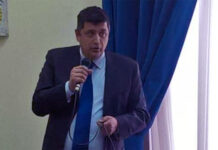(Jamma) Review the increase in the sharing of the cost of health services by providing, as financial cover, in addition to the savings deriving from a serious reorganization of the outpatient specialist care sector, the establishment of a levy on winnings from lotteries and the reduction of external consultants in the health sector which, in the opinion of the Court of Auditors, is a phenomenon to be pursued and condemned as a harbinger of waste of resources.
This is the proposal presented in an interpellation addressed to the Minister of Health by a large group of senators from the Democratic Party, among which we include:
Dirindin, Martini, Lepri, Maturano, De Biasi, Bianco, Granaiola, Mattesini, Padua, Silvestro, Albano, Amati, Angioni, Bertuzzi, Borioli, Cardinali, Casson, Chiti, Cirinn, Corsini, Cucca, D'Adda, Di Giorgi, Esposito Stefano, Fabbri, Fattorini, Favero, Fedeli, Filippin, Fornaro, Gatti, Ghedini Rita, Gotor, Guerrieri Paleotti, Lai, Lo Giudice, Lo Moro, Manassero, Marino Mauro Maria, Mineo, Morgoni, Mucchetti, Orrù, Pagliari, Parente , Pegorer, Pezzopane, Puglisi, Puppato, Rossi Gianluca, Russo, Sangalli, Santini, Scalia, Sollo, Spilabotte, Sposetti, Tomaselli, Tonini, Verducchi and Zanoni.
Below is the full text of the interpellation
To the Minister of Health.
- Given that:
the increase in the sharing of the cost of healthcare services (the 10 euro co-payment on prescriptions for specialist outpatient assistance and the co-payments introduced in the regions subject to a recovery plan) are significantly worsening the conditions of economic access to care, especially among the weaker than the population, more heavily affected by the crisis and by the uncertainties connected to it (unemployment, job insecurity and flexibility, business bankruptcies, new poverty, mental illness, social stress), in a situation already strongly compromised by the continuous restrictions imposed in recent years to health and social spending and the containment of the supply of services;
the continuous changes to the system of sharing the cost of healthcare services and to the exemption regime risk not only reducing the levels of protection guaranteed up to now, but also not producing the revenue for which the economic maneuvers were envisaged;
the growing complexity of the system, based on a plurality of criteria that are not always coherent, inevitably produces disparities in treatment, especially between the various Italian regions, all the more odious the more it is borne by the less well-off; by way of example, we note the different treatment reserved for the unemployed (who are granted exemption from tickets if they belong to a family unit with a total gross income of less than 8.263,31 euros, increased up to 11.362,05 euros in presence of the spouse and at the rate of an additional 516,46 euros for each dependent child) compared to the growing number of unemployed (to whom only some regional regulations recognize the exemption);
Article 17, paragraph 1, letter d), of the decree-law of 6 July 2011, n. 98, converted, with amendments, by law 15 July 2011, n. 211, envisages, starting from 2014, an increase in the sharing of healthcare costs for an amount equal to 2.000 million euros; the Constitutional Court, with sentence n. 187 of 16 July 2012, declared illegitimate the exercise by the State of the regulatory power in matters in which it does not have exclusive competence, thus making the increase in tickets not applicable; the Economic and Financial Document 2013, section II, in acknowledging the illegitimacy of the provision, however does not clearly indicate which different method of financing can be adopted, in particular as the variation in the financing contributed by the State budget does not result;
the prediction of a significant increase, which can be estimated in the order of 50 per cent over the course of a few years, in the costs borne by the patients at the time of consumption of the health services raises significant concerns; the well-known weaknesses of the system, in terms of efficiency and fairness, in fact risk becoming difficult to tolerate in a context in which citizens, increasingly
poor, pay ever higher tickets. The most serious impact occurs, however, when the increase in tickets is accompanied by the questioning of the protection system: continuous reductions in services could arouse alarmed reactions from citizens, as well as from the Regions, also due to the role of glue of national unity carried out in the past by the NHS, and to feed a growing social dissatisfaction;
whereas:
from the month of April 2011 the decree of the Minister of Economy and Finance of 11 December 2009 came into force which modifies, for specialist outpatient assistance, the procedures for recognizing income exemptions. In particular, the decree provides for the overcoming of the previous system, based on the simple self-certification of the citizen, providing for the use of the databases available in the public administration and the start of the computerization of the procedures for the recognition of income exemptions;
the new system constitutes an important step forward in the fight against non-payment of the ticket, but the transition from self-certification to the list of names of the Revenue Agency was carried out with very different times and methods between the regions and required the beneficiaries and not negligible bureaucratic obligations to doctors; the growing presence of particular cases (people whose economic condition worsens during the year or changes the composition of their family) has also made it necessary to maintain self-certification, making clear the fragility of the procedure;
also considering that:
article 17, paragraph 6, of the aforementioned decree-law reintroduced the 10 euro ticket on specialist assistance (already provided for by a provision of the finance law for 2007, then repealed by decree-law n.112 of 2008 for distortions that the introduction of the ticket could have created), a partnership that produces significant distorting effects, making it less expensive to resort to the private market for services (instead of the public service) for a large number of services with low tariffs ( estimated at around 50 euros per prescription). Consequently, most of the specialist outpatient services (laboratory analyses, specialist visits, diagnostic imaging) implicitly go beyond the levels of assistance guaranteed to non-exempt patients, regardless of any assessment of appropriateness with respect to the specific health needs of individuals. Not only. The high levels of participation imposed on the better-off reduce the benefits they can count on in the event of illness and lead them to question the opportunity of continuing to participate in a universal and supportive public system;
the application of the 10 euro ticket on specialist assistance is extremely differentiated at the regional level. Reasons of allocative efficiency and distributive equity have in fact led the Regions to adopt a different modulation of the ticket, subject to certification by the Ministry of the Economy of the criterion of equivalence of the revenue. In general, the Regions endowed with greater autonomy (those with a special statute) have often disregarded the application of the ticket; the Regions traditionally more attentive to equity have introduced progressive tickets based on income; the Regions most attentive to the functioning of the markets have modulated the ticket based on the cost of the service; finally, other Regions limited themselves to applying the national legislation. The result is the occurrence of variegated effects, and often in the opinion of the questioners perverse, as demonstrated by the preliminary results of the recent survey by Agenas;
the objective of "raising cash", which the introduction of the ticket aimed at, was not achieved as the citizens' renunciation of services (at both public and accredited private structures), the reduction of access to public specialist assistance (estimated on average equal, among the non-exempt, to around 17 percent) and the increase in the number of exempts due to pathology, are producing an effective revenue that is considerably lower than that envisaged by the provision. Recent estimates by Agenas indicate an increase in revenue of around 500 million euros against an expected target of 834 million euros; it should be noted that the cost savings associated with the decrease in the services provided within the public service are in any case modest as they are limited to the marginal component of production costs only; even more modest are the savings if considered net of the administrative costs of ticket management (of unknown amount, but increasing as the complexity of the system increases) and the loss of Irpef revenue (tax expenditure) deriving from the concessions granted to tickets in tax return office,
you ask to know:
if the Minister in address does not deem it necessary and no longer deferable to adopt any useful initiative to provide for the repeal of the aforementioned regulations relating to the increase in the sharing of citizens in health care costs for an amount equal to 2.000 million euros starting from 1 January 2014 and the reintroduction of the 10 euro co-payment on prescriptions for specialist outpatient assistance in order to remedy an unsustainable situation that weighs on citizens increasingly forced to give up healthcare services due to the cost of the co-payment , as well as to avoid the progressive, implicit downsizing of the essential levels of assistance, envisaging interventions aimed at bringing specialist assistance back within more rigorous criteria of appropriateness, effectiveness and efficiency, in analogy with what is envisaged for other health sectors the universal and supportive public health system;
whether it does not deem it appropriate to provide, as financial cover, in addition to the savings deriving from a serious reorganization of the specialist outpatient care sector, the establishment of a levy on lottery winnings and the reduction of external consultancies in the health sector which, in the opinion of the Court of Auditors, is a phenomenon to be prosecuted and condemned as a harbinger of waste of resources.










